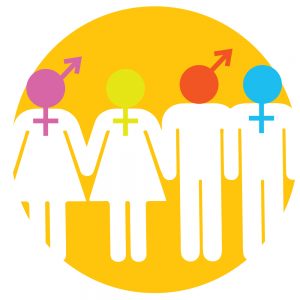
“I want to make sure that people understand that, behind this national conversation around transgender rights, there are real people who hurt when they’re mocked, who hurt when they’re discriminated against, and who just want to be treated with dignity and respect”
– Sarah McBride, Trans Activist
North Carolina’s Public Facilities Privacy & Security Act was implemented in 2016, as legislators were concerned that having transgender folk walk into a bathroom that didn’t correspond with their birth sex would incite voyeurism, as well as violence and harassment of cisgender individuals.
Many know this procedure by its more derogatory name, the “bathroom bill.” This unfairly labeled members of the transgender community as deviants. The trans community was furious because there was no proof to support these assumptions. Lawmakers added insult to injury with this specious argument, since members of the trans community were the ones commonly assaulted in bathrooms, not the other way around.
A close friend of mine who was born male but now identifies as a female named Alice told me that the stares and the suspicion that people might want to hurt you is ever present when walking down the street. Even during the simple act of going to the bathroom, she suspects somebody will want to bust the door down and attack. The proposal to remove public accommodation rights only heightens this fear.
When asked if more laws were to be put into place, would her mind be put at ease while using these facilities, Alice affirmed that it would. Laws can’t stop all hurtful actions, but they would at least be discouraged. Laws are the best thing we have now to discourage violent and malicious behavior. Laws set the tone for public discourse. In a similar way, when a company makes a statement of inclusion, its employees and clients know what is expected of them, even if they don’t always follow company policy.
In November, the law protecting transgender individuals from discrimination in Massachusetts could face repeal. This law was enacted in 2016 and is already in danger of being undone by individuals with an anti-LGBTQ agenda. Thanks to our progressive legislators and attorney general, Massachusetts is a leader in LGBTQ rights, starting with marriage equality, and that reputation is now in danger. It was the first state to enable same-sex marriage and the second to include sexual identity in anti-discrimination laws. If one of the best states for LGBTQ representation starts to regress, there is no telling what could occur afterwards.
If you want to support the rights of LGBTQ members everywhere, don’t stand idle. Vote YES when the time comes to vote on the ballot to uphold our antidiscrimination laws and to keep our state’s reputation of being an LGBTQ powerhouse.
These organizations can help you join the fight for equality and maintain our humanity. GLAAD Transgender Media Program: glaad.org/transgender. Massachusetts Transgender Political Coalition: masstpc.org. Freedom for All: freedommassachusetts.org
Elliott Mercier, Guest Columnist






